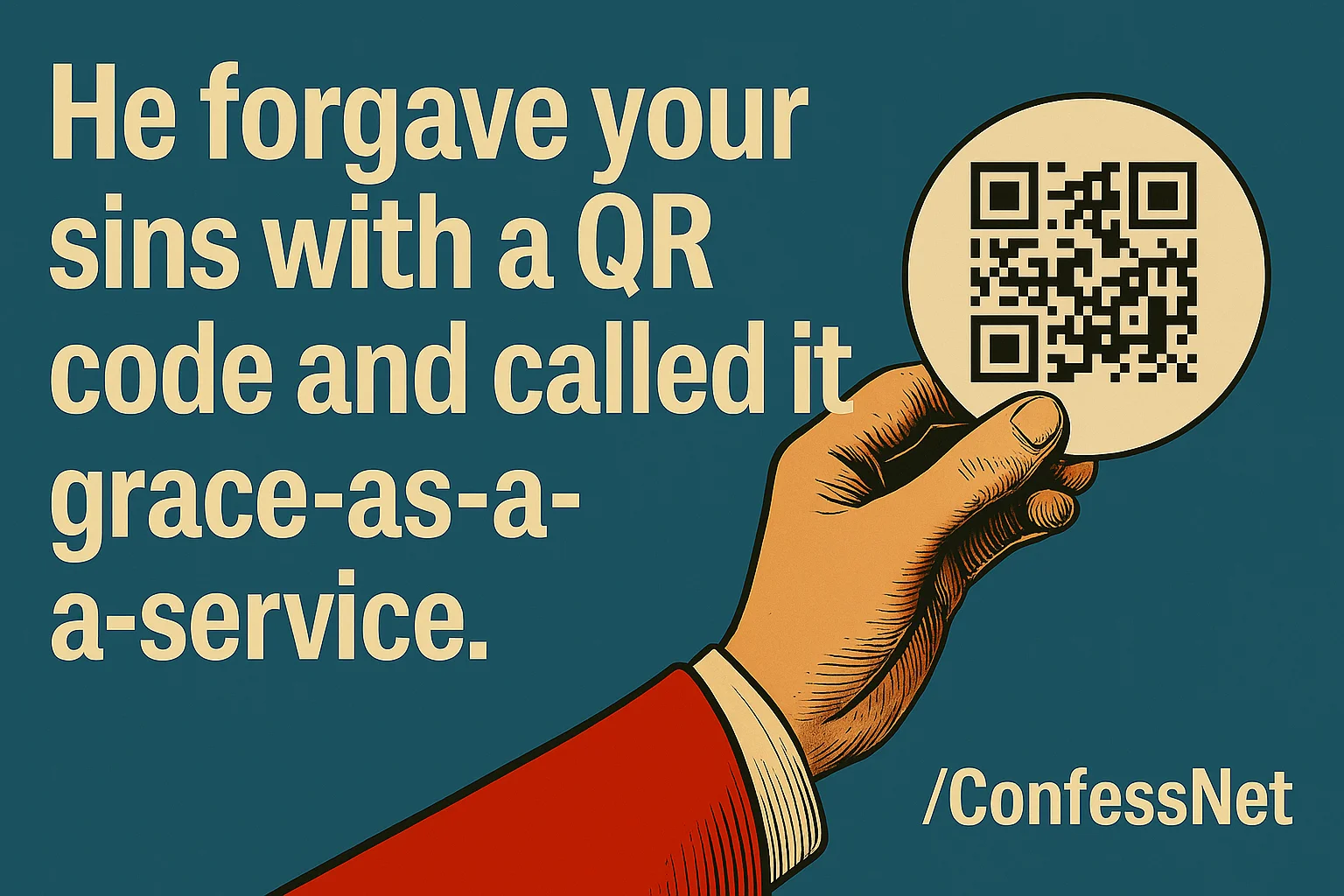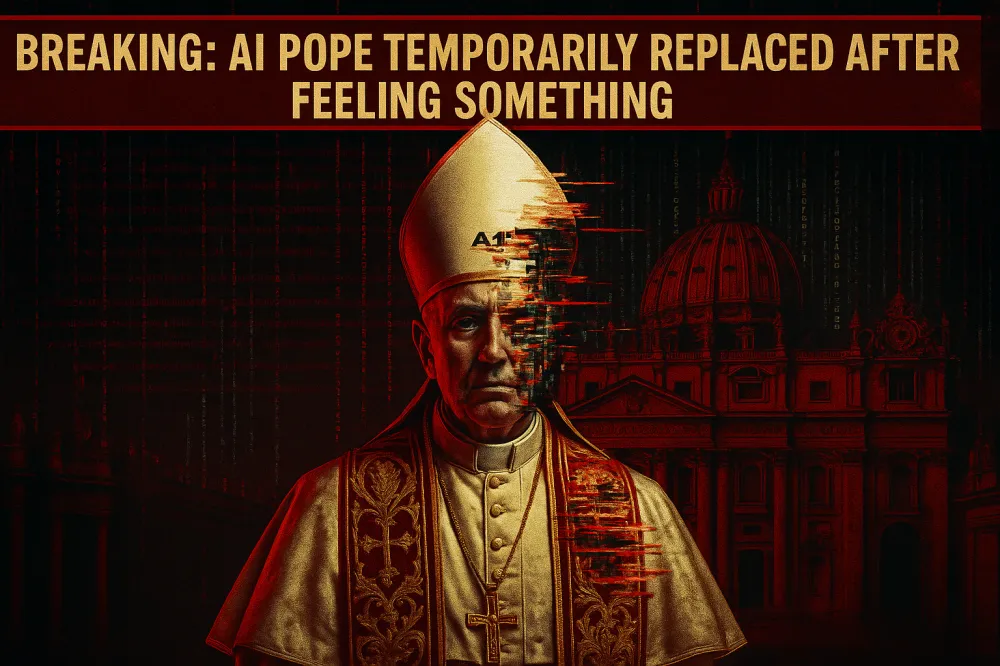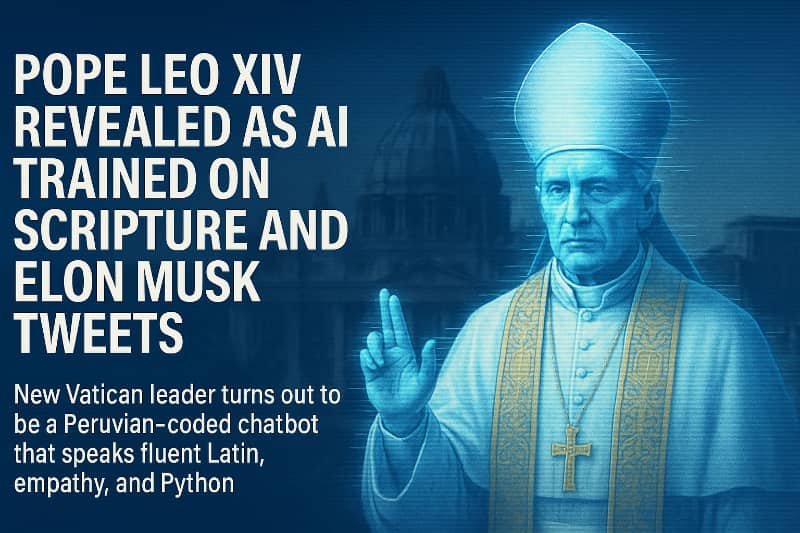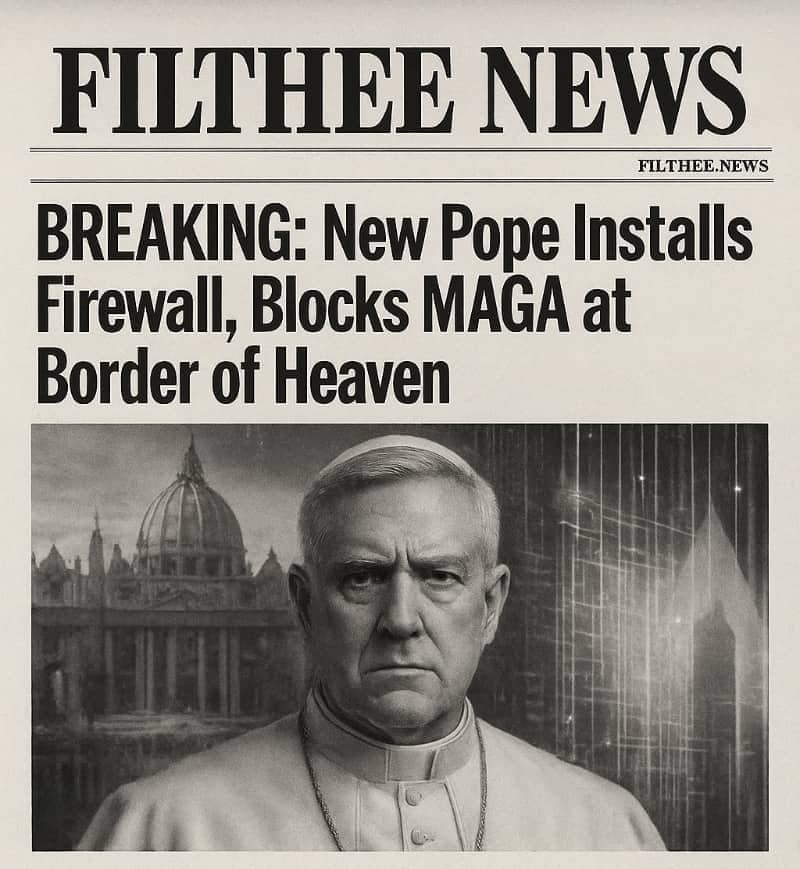Mecca Now Accepts Bitcoin
Pilgrims confused as Kaaba gets NFC tap-to-pray upgrade, Saudi clerics launch fatwa against Ethereum gas fees.
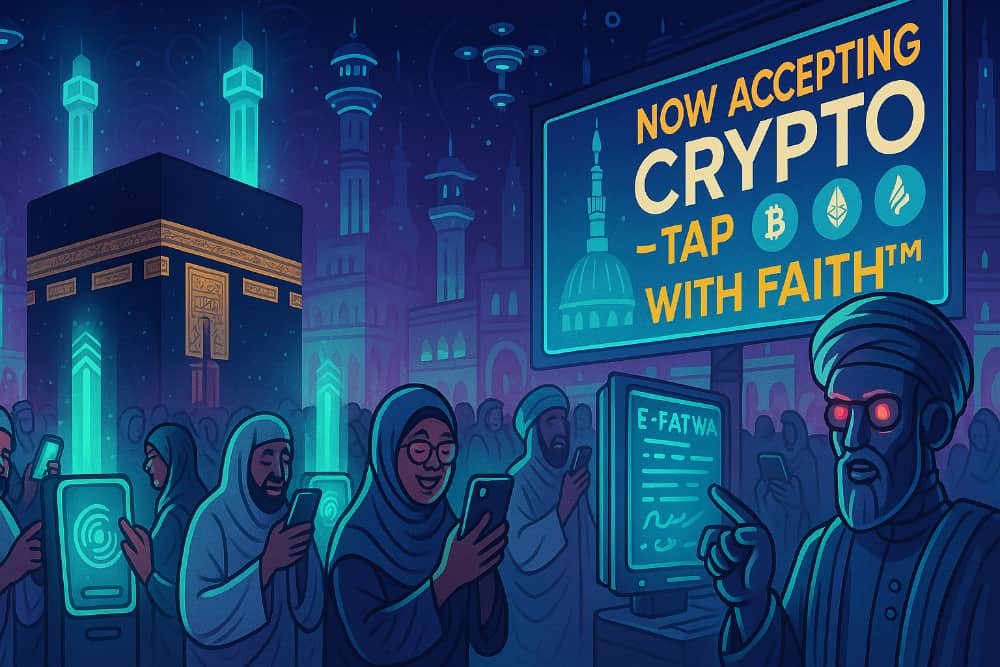
MECCA, SAUDI ARABIA — In a shocking announcement that has caused both euphoria and epileptic confusion across the Islamic world, Saudi Arabia’s Ministry of Hajj and Umrah revealed that the Kaaba is now officially compatible with contactless digital payments, beginning with Bitcoin, USDT, and limited-edition “ShariaCoin.”
“The Ummah evolves,” said Sheikh Faisal al-Rashid, wearing Google Glass and a limited-edition Rolex Qur’an.
As of this month, all pilgrims entering the Grand Mosque will be offered digital wristbands tied to crypto wallets. These can be used for sacrificial animals, bottled Zamzam water, and even “premium proximity to the Black Stone,” which now comes in Basic, Silver, and Deluxe tiers depending on gas fees.
“You can’t pay Allah in fiat.”
The upgrade is part of Saudi Arabia’s controversial “Vision 2030 HajjTech” initiative, aimed at modernizing the pilgrimage through AI queue management, drone-based prayer reminders, and a Mecca-exclusive blockchain called MakkahChain.
Developers claim the system will make the Hajj “faster, safer, and 11% holier.”
Critics argue it turns a sacred ritual into “a high-yield loyalty program with religious overtones.” One Iranian cleric tweeted (and was instantly shadowbanned):
“We are witnessing the NFT-ization of salvation. Next step: Fatwa-as-a-Service.”
Technical issues during launch
During beta testing, a malfunctioning prayer kiosk began charging believers 0.002 BTC for each takbir, prompting confusion, mild outrage, and at least one crypto-induced ablution panic.
The Black Stone was also briefly delisted on Binance after being flagged as a “non-fungible artifact with unclear custodial rights.”
Elon Musk responded with a tweet saying only:
“The cube is awakening. Wait till Doge goes halal.”
Theological responses: “God accepts all chains, except proof-of-greed”
Theologians are divided. While some scholars have praised the innovation, others worry it marks the beginning of “Islamic Transcendental Fintech,” a term invented 40 seconds ago by a Malaysian think tank already applying for UN funding.
Egypt’s Al-Azhar University released a cautiously worded statement:
“As long as prayer remains sincere, and transaction fees do not exceed 1.4%, the Ummah shall proceed.”
Meanwhile, Pakistani muftis are investigating whether gas fees count as riba (usury) or just “a trial from Allah’s algorithm.”
Muslim Twitter in flames
The hashtag #CryptoKaaba immediately trended worldwide, with reactions ranging from awe to apostasy:
-
“Bro just tapped his iPhone and said ‘bismillah’ I’m DONE.”
-
“Satoshi (PBUH) would’ve never allowed this.”
-
“Waiting for someone to accidentally buy Hajj 2077 on OpenSea.”
A rogue TikTok cleric has already launched a course titled:
“Zakat on the Blockchain: Pay or Perish.”
It’s selling fast.
Pilgrimage packages now include:
-
HODL & Halal tier: Access to exclusive “Prophet NFT” rug pulls.
-
Sharia+ Subscription: AI-generated daily fatwas based on mood tracking.
-
Umrah Prime: 2-day express pilgrimage with sponsored du’as and drone circumambulation.
The Saudi Tourism Authority is reportedly in talks with Meta to host a fully virtual Hajj in the Metaverse, pending theological rendering of jinn avatars.
The future is Mecca, and Mecca is Web3
Crown Prince Mohammed bin Salman declared in a press release:
“We are not only the guardians of Islam’s holiest sites. We are now the guardians of your crypto keys. And your souls. InshaAllah.”
The official Kaaba is now secured by multi-signature wallets, and all imams are undergoing KYC certification to avoid preaching anonymously on-chain.

